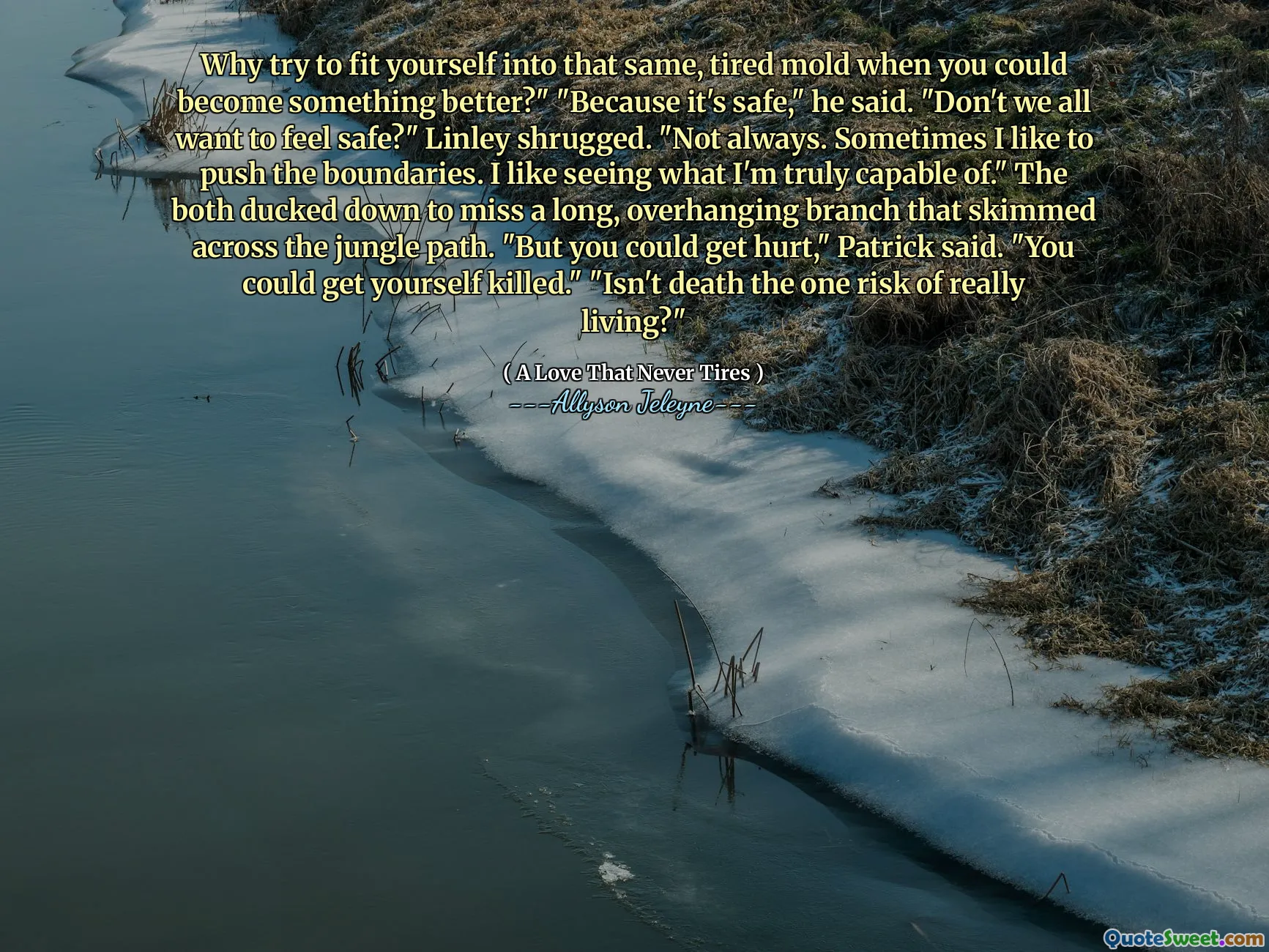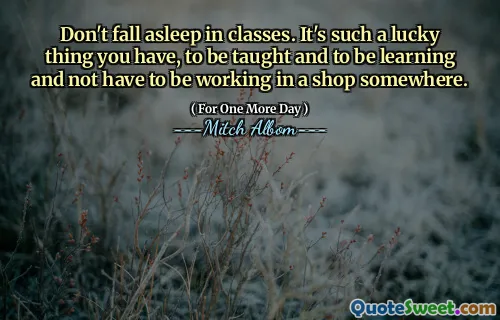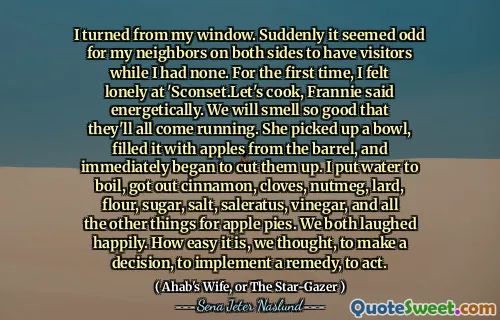
Why try to fit yourself into that same, tired mold when you could become something better?" "Because it's safe," he said. "Don't we all want to feel safe?" Linley shrugged. "Not always. Sometimes I like to push the boundaries. I like seeing what I'm truly capable of." The both ducked down to miss a long, overhanging branch that skimmed across the jungle path. "But you could get hurt," Patrick said. "You could get yourself killed." "Isn't death the one risk of really living?"
This quote explores the timeless tension between comfort and growth. The dialogue prompts us to question the safety and predictability of our lives versus the invigorating challenge of stepping outside our comfort zones. The idea of fitting into a 'tired mold' resonates with many who feel their routine or societal expectations may stifle their true potential. Linley's response emphasizes the importance of risk-taking as an essential component of authentic living. The analogy of ducking under a branch in the jungle symbolizes moments in life when we must decide whether to avoid danger or confront it to experience personal growth. Patrick’s caution reflects our natural instinct to seek safety, yet the question posed—whether death is the ultimate risk of truly living—forces us to reconsider what it means to truly embrace life. Far from advocating recklessness, the quote encourages a balanced understanding: embracing challenges and uncertainties can be vital for fulfillment, even in the face of potential harm. Life’s meaningful moments often arise from the willingness to push boundaries, accept risks, and confront fears. It invites us to reflect on whether our desire for safety might be preventing us from realizing our full potential. Ultimately, this dialogue is a celebration of courage, resilience, and the human spirit’s desire to grow through adversity.






